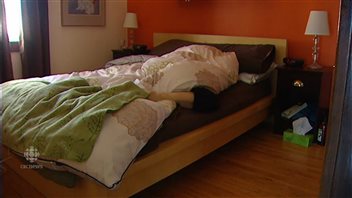Doing shift work for more than ten years ages the brain by more than six years, according to a new study published in the journal Occupational and Environmental Medicine. The effect can be reversed when people switch to regular hours, but that takes at least five years.
Sleep loss can lead to big disasters
“Sleep loss and shift work and daytime fatigue and tiredness have been associated with some of the most devastating disasters that are known including the grounding of the Exxon Valdez, Three Mile Island and Chernobyl. So there can be really disastrous consequences,” says Stuart Fogel, research scientist at Western University’s Brain and Mind Institute.
Listen“On a smaller scale, there’s a large impact on safety and productivity and workplace performance, but also things like driving, it can affect your reaction time, things like that.”

Results ‘quite significant’
Researchers from France and the United Kingdom followed over 2,500 employed and retired workers in southern France for over a decade and Fogel calls their results quite significant. “I think it has implications for the importance of sleep for not only information processing, cognition and memory, but I think it could have much more far-reaching implications for other functions that sleep subserves.”
The findings could be useful in the study of dementia which is associated with disrupted sleep patterns. “Sleep-related deficits have been observed in a variety of dementias such as Alzheimer’s and Parkinson’s disease and we’re just beginning to unravel the links between dementia, age, sleep and memory,” says Fogel.
‘Make sleep a priority’
Meanwhile people should reduce the number of night shifts they work where possible, he says, but failing that they should make sleep a priority. That means making the bedroom a place for sleep–keeping it dark and quiet and devoid of electronic devices like phones or computers.
Fogel says getting outdoors is also important since sunlight helps regulate the body clock and can improve sleep.







For reasons beyond our control, and for an undetermined period of time, our comment section is now closed. However, our social networks remain open to your contributions.